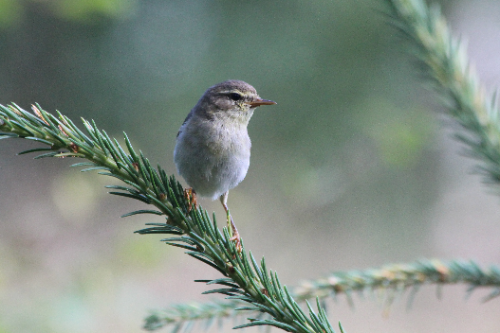News

February 3, 2023
Scientists warn: going out on the ice on small lakes is becoming increasingly dangerous year by year. Global warming notably changes ice thickness and structure and, hence, its load-bearing strength. These conclusions are based on observations carried out by researchers on lakes of the Northern Hemisphere, including Karelia. The results of the work of an international team of scientists, which included Karelian specialists, were published in the prestigious international journal Nature Communications.

February 2, 2023
The activities of specialists from the Mire Ecosystems Laboratory of the Institute of Biology KarRC RAS extend far beyond the boundaries of the republic. Head of the Laboratory Stanislav Kutenkov, e.g., took part in the discovery and study of a wetland type novel for the Far East (while typical for Fennoscandia) - aapa mires. On the World Wetlands Day, February 2, telmatologists told the guests of the KarRC RAS Museum of Applied Environmental Research about their studies in more detail.

January 26, 2023
Directors of KarRC RAS scientific subdivisions told about their activities in the previous year. January 25th was the last of the two days of the KarRC RAS Learned Council session dedicated to the results of year 2022. Reports were presented by leaders of the Institutes of Applied Mathematical Research, Economics, Linguistics, Literature, and History, and the Department for Multidisciplinary Research.

January 25, 2023
Why are southern species advancing farther north? How do we get timber with desired properties? Does global warming change the ice? How does the geological well in the Kondopozhsky District help study the origin of life on the planet? These and many other topics were in the focus of research for Karelian scientists last year. Directors of KarRC RAS institutes recapitulate on the results of their activities at the January session of the Learned Council.

January 21, 2023
January 21st is International PhD Day. Karelian Research Centre RAS currently trains 61 doctoral students in 24 programs. They are both recent university alumni and specialists with experience in various spheres. We congratulate doctoral students on their day and wish them interesting studies and productive research!

January 17, 2023
Karelian ornithologists launched the world's first study of 3D territories of songbirds during the breeding season in the Palearctic. Researchers use modern methods of visualization and 3D analysis to create models of the spaces inhabited by pairs of Willow Warblers. Among other things, this will help find out how logging affects the survival of a particular bird species. The study was supported by a grant from the Russian Science Foundation for small research groups.

January 12, 2023
Karelian Research Centre of the Russian Academy of Sciences received a grant from the Ministry of Higher Education and Science of the Russian Federation to update its instrument facilities in 2023. The funds will be used to purchase equipment for elemental analysis, molecular-genetic, biomedical studies and other research areas.

January 11, 2023
Over 600 people have visited the Museum of Applied Environmental Research at KarRC RAS since its opening in the fall 2022. In the new year, the Museum plans to widen its audience, augment the exhibition, and begin to use new formats.

December 30, 2022
A new laboratory, for greenhouse gas monitoring, has been established at the Karelian Research Centre RAS. It will be part of the Department for Multidisciplinary Research (DMR). Laboratory staff will work to estimate the carbon balance in natural and drained peatland ecosystems of Karelia.



